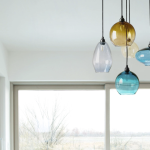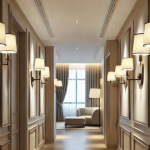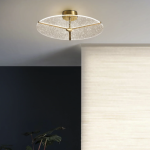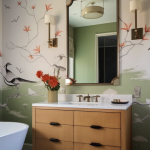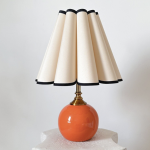What is Scandinavian Design?
Scandinavian design emerged in the 1950s in the Nordic countries of Denmark, Norway, Sweden, Finland, and Iceland. It is known for its minimalist aesthetic, functionality, and cozy, warm atmosphere.
Key Features of Scandinavian Interior Design
Minimalism
Scandinavian design favors minimalistic aesthetics with a focus on simplicity, clean lines, and the use of natural materials. The color palette varies from white, muted pastels to earthy tones.
Functionality
Scandinavian design prioritizes functionality over form, making the best use of space with practical and straightforward designs. For instance, multi-functional furniture is a common feature of Nordic homes.
Natural Elements
Natural elements are a crucial part of Scandinavian interior design, bringing the outside inside the home. Wood, stone, and real plants are common focal points, creating a peaceful and warm atmosphere.
How to Achieve an Interior Scandinavian Design
Color Palettes
Start with a neutral color palette that includes light shades such as white, beige or grey. Pastel colors can complement the base palette adding warmth to the room. Earthy colors such as brown, green and dark blue, can add depth and an earthy feel.
Lighting
Lighting should be warm and cozy, incorporating natural light elements from windows to bring the outside inside. Sconces, floor lamps, and pendant lights also help to create a peaceful atmosphere.
Textiles
Soft, cozy textiles are a hallmark of Scandinavian design. Materials such as wool, linen, cotton, and sheepskin can add texture and comfort to the home. Floor-length curtains also help to soften the lines of the windows and bring warmth to the room.
Furniture
Furniture should be functional and versatile, and multi-functional furniture is common in Scandinavian homes. Furnishings should have clean, straight lines with no or minimal decorative features.
Natural Decorations
Nature plays a significant role in Scandinavian design, so incorporating natural elements such as plants, flowers, stones, or wood sculptures can add an organic touch to the space.
The Benefits of Scandinavian Interior Design
Relaxation and Comfort
The simplicity and coziness of Scandinavian design can help to create a sense of relaxation and peace in the home. A calming and relaxing atmosphere can reduce stress and help people feel more comfortable in their living space.
Functionality and Organization
Scandinavian design is known for prioritizing functionality, so the home can become more organized and spacious with minimalistic furnishings and multi-functional designs.
Aesthetic Appeal
The simplicity and clean lines of Scandinavian interiors can create an aesthetic appeal, creating a timeless look that won’t quickly go out of style.
Conclusion
Scandinavian design offers a sleek, clean, and cozy aesthetic that can make a home more inviting and peaceful, making it an ideal choice for anyone who wants to create a serene living space. By incorporating natural elements, multi-functional furniture, and a calming color palette, it’s possible to create a Scandinavian-inspired design that evokes a sense of warmth and relaxation in the home.


